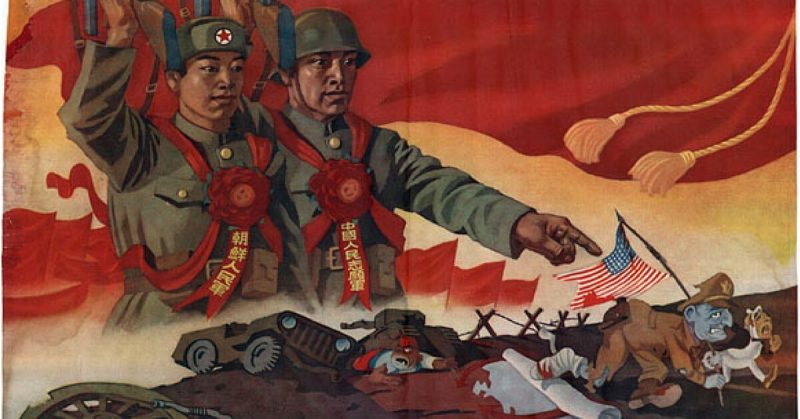A recently released film, ‘My War,’ directed by Peng Shun, a Hong Kong resident well known for directing horror films, has resurrected the debate over China’s involvement in the Korean War. This war, which has never had a peace treaty signed, was brought to a tenuous close by the signing of an armistice agreement that divided the Korean peninsula into two states, North Korea that has remained secretive and under Communist rule and South Korea, backed by the West.
A promotional video for the film, released on YouTube, has caused a furor in China. It shows a group of aged Chinese tourists on a bus, ostensibly taking a tour of Seoul and guided by a young Korean girl. The tourists are well-known Chinese actors and actresses, and as the young tour guide starts her introduction, she is interrupted by the elderly Chinese who tell her that they have been to Seoul before. She appears confused, as she could find no record of them entering South Korea before, but the elderly people tell her that the last time they came they did not need passports, they carried “red flags” and at that time Seoul was called Hansung. The implication was that they were part of the Chinese invading force that supported the North Koreans while the United Nations, with a mainly American force, supported the South Koreans. The video ends by the young tour guide being advised to watch the film ‘My War’ and the tourists then chant, “Resist US aggression and aid Korea, protect our home and defend our country,” a propaganda slogan widely used by the Chinese during the Korean War.
The video has drawn little from South Korea, but the reaction from the Chinese who have seen the video on YouTube has been sharp and highly critical. Comments such as “disgusting” are common, and one comment likened the commentary on the film to farmers discussing crops rather than the trauma of war. Many comments took up a human rights theme, “No war should be consumed light-heartedly,” wrote one commentator, who inferred the video reflected a mentality that “represents the most cold-blooded value of war.”
Many Chinese are not happy about drawing attention to their close liaison with North Korea, especially with the North Korean nuclear program causing so much dissent at this time. China is also against the proposed nuclear missile shield that America intends placing in South Korea as protection against North Korean aggression, China Digital Times reported.
The film’s director strenuously denied that he had had anything to do with the creation of the promotional material, claiming he neither designed nor directed the video and that it “has nothing to do with the film.” He pleaded for people to judge the film on its own merits saying it attempted to reflect war’s cruelty and inhumanity by following young Chinese soldiers. In an interview with Entertainment Capital, Pang says, “There is no hero – only the fear, pain and growth that ordinary people experience during the war.”
The production company for the film, China Film Co., a subsidiary of the state-run China Film Group, have also made no comment on the issue.
The film is an adaptation of the book Tuanyuan (Reunion) written by Ba Jin has been released in China. According to the media review site douban.com, it holds 3.5 out of 5 starts, and China Box Office says it has earned nearly $4 million. The film stars Chinese actors Liu Ye and Wang Luodan and Taiwanese actor Tony Yang.
